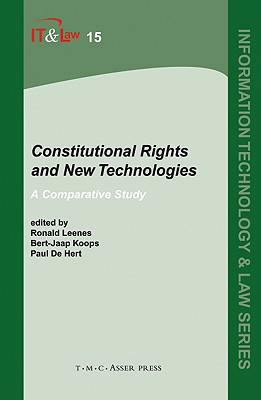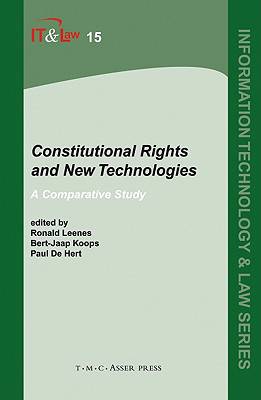
- Afhalen na 1 uur in een winkel met voorraad
- Gratis thuislevering in België vanaf € 30
- Ruim aanbod met 7 miljoen producten
- Afhalen na 1 uur in een winkel met voorraad
- Gratis thuislevering in België vanaf € 30
- Ruim aanbod met 7 miljoen producten
Zoeken
Constitutional Rights and New Technologies
A Comparative Study
€ 75,45
+ 150 punten
Omschrijving
New technologies affect the legal system, but do they and should they also affect constitutional rights? These are questions that every country has to address, taking into account their constitutional system and legal tradition. This book surveys changes in constitutional rights and human-rights policy related to developments in ICT and new technologies in the USA, Canada, France, Germany, Sweden, Belgium and the Netherlands. The seven country reports provide in-depth accounts of changes to the constitutional system (such as a constitutional review and the influence of international law), case law and (policy) developments with respect to freedom of expression, privacy, inviolability of the body, inviolability of the home and freedom of communication. The book is recommended to policy-makers, members of the judiciary, academics and practitioners, as it provides inspiration for diverging strategies to achieve continued protection for the widely-shared constitutional values of privacy and freedom of expression.
Specificaties
Betrokkenen
- Uitgeverij:
Inhoud
- Aantal bladzijden:
- 320
- Taal:
- Engels
- Reeks:
- Reeksnummer:
- nr. 15
Eigenschappen
- Productcode (EAN):
- 9789067042468
- Verschijningsdatum:
- 14/02/2008
- Uitvoering:
- Hardcover
- Formaat:
- Genaaid
- Afmetingen:
- 163 mm x 244 mm
- Gewicht:
- 680 g

Alleen bij Standaard Boekhandel
+ 150 punten op je klantenkaart van Standaard Boekhandel
Beoordelingen
We publiceren alleen reviews die voldoen aan de voorwaarden voor reviews. Bekijk onze voorwaarden voor reviews.






